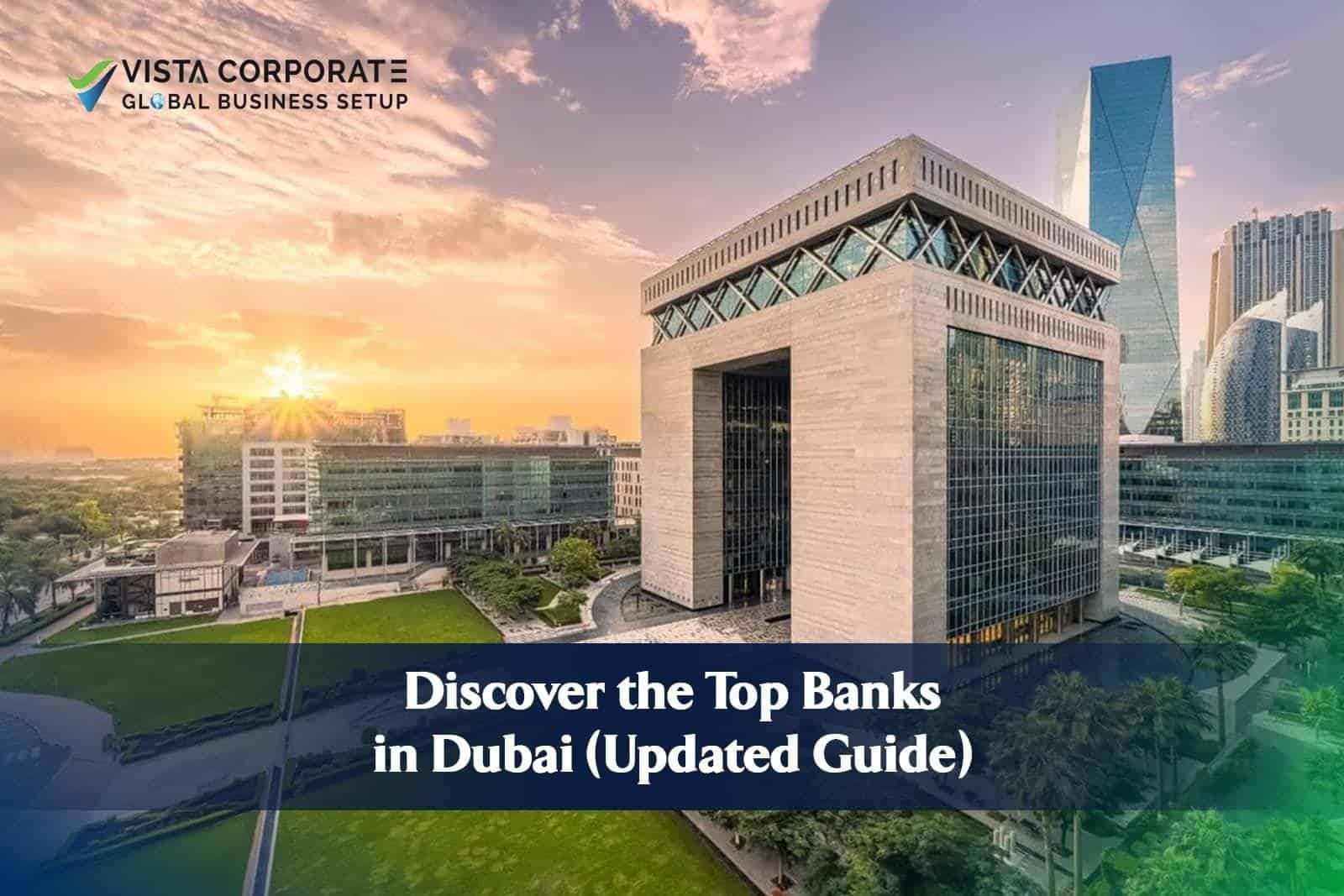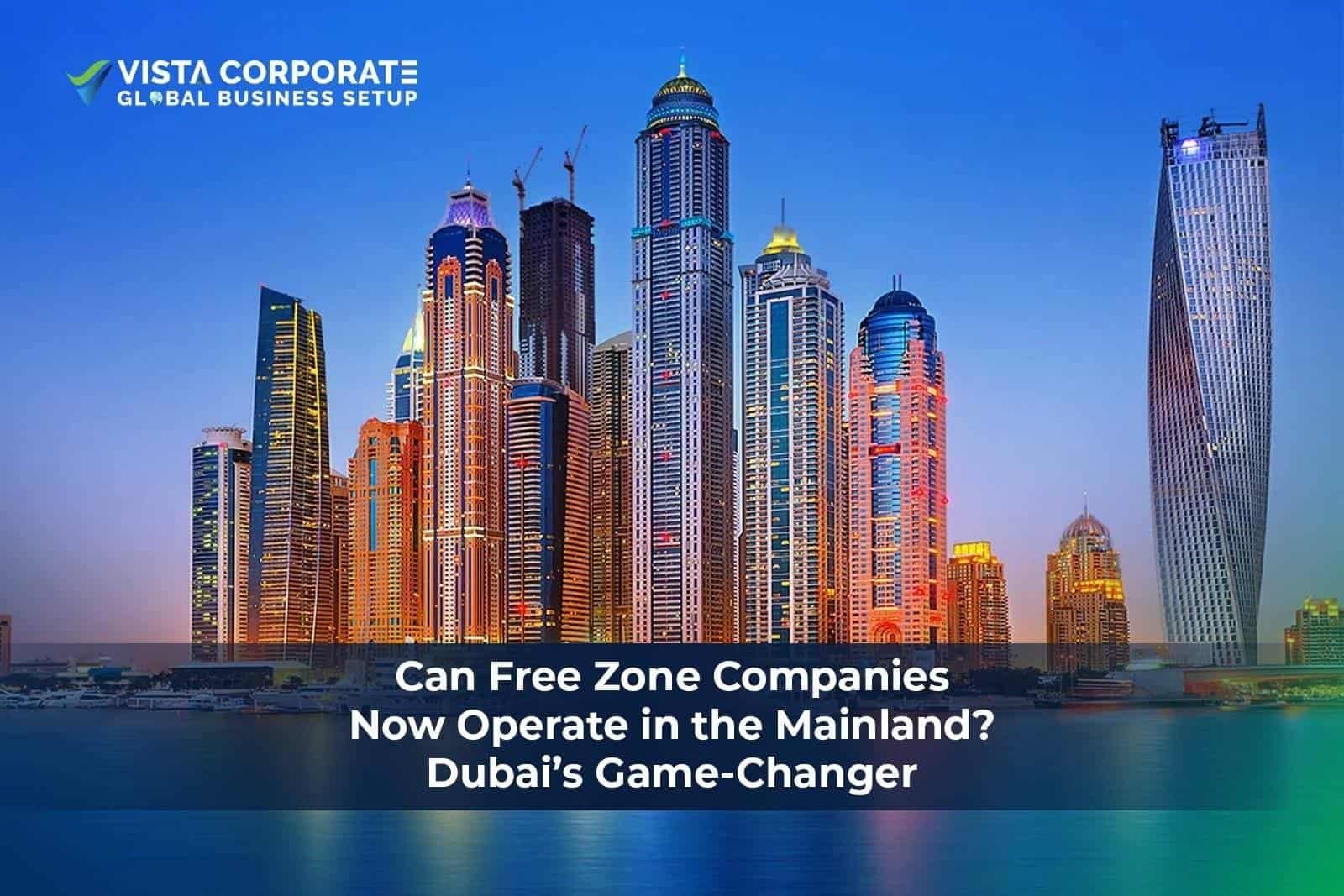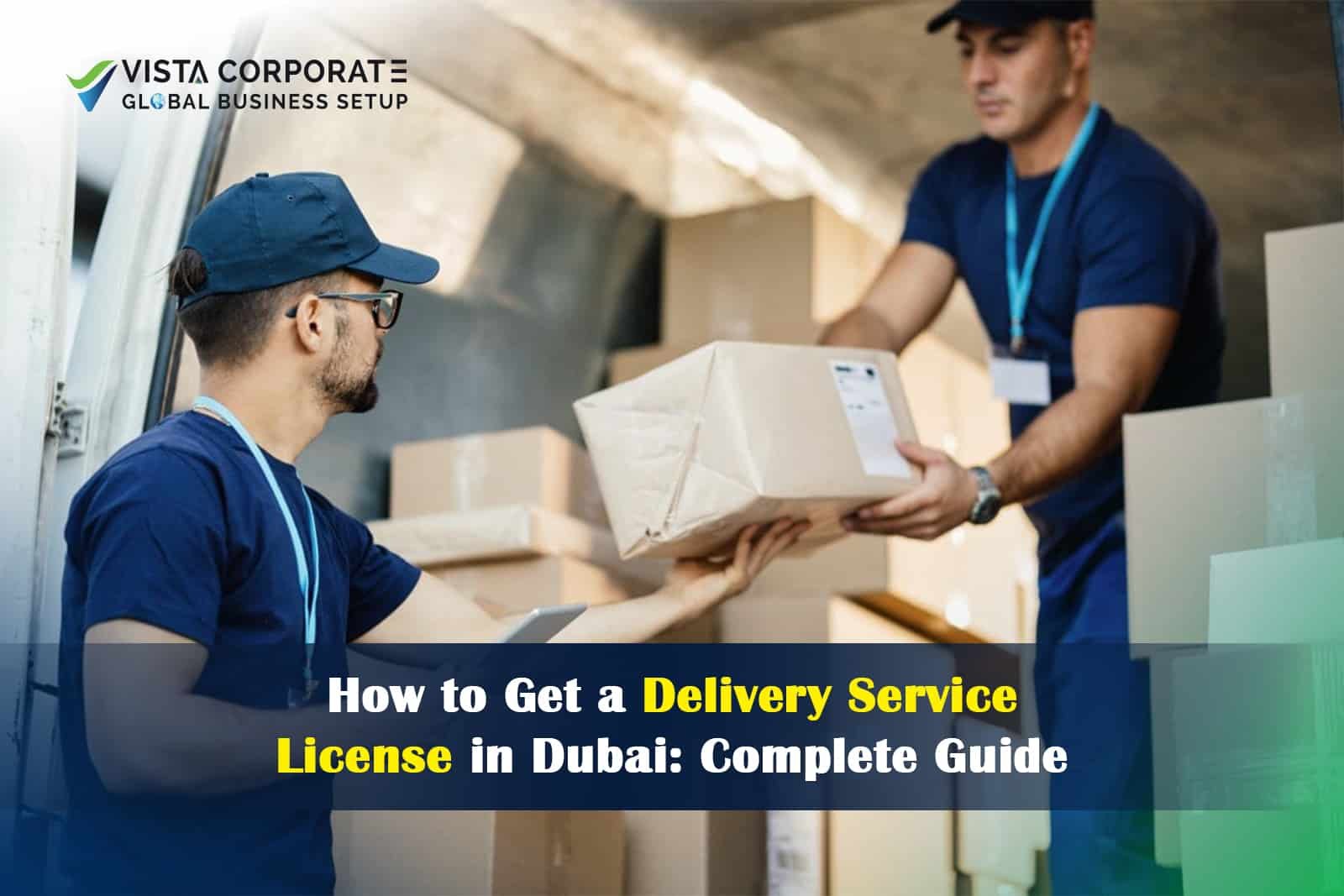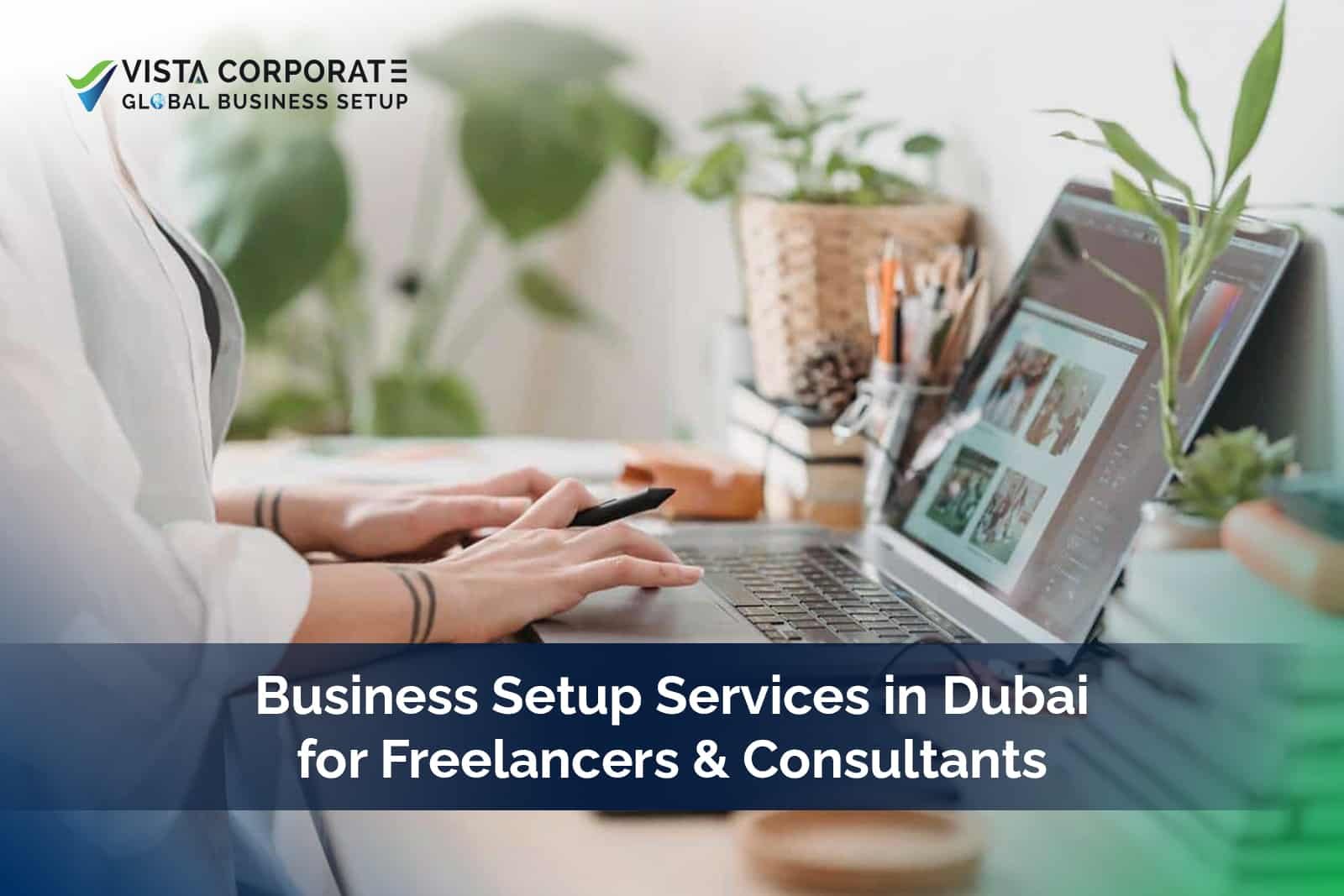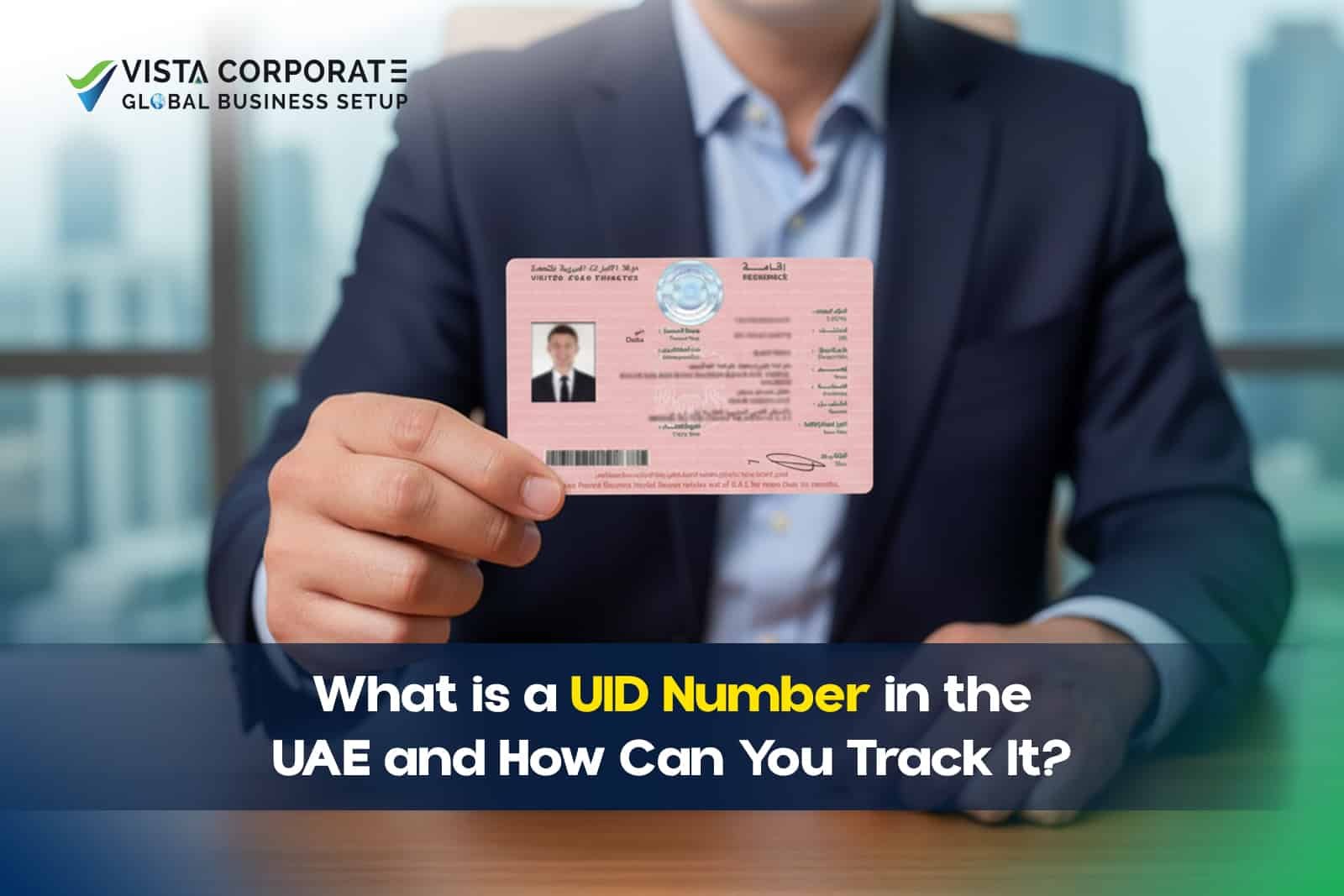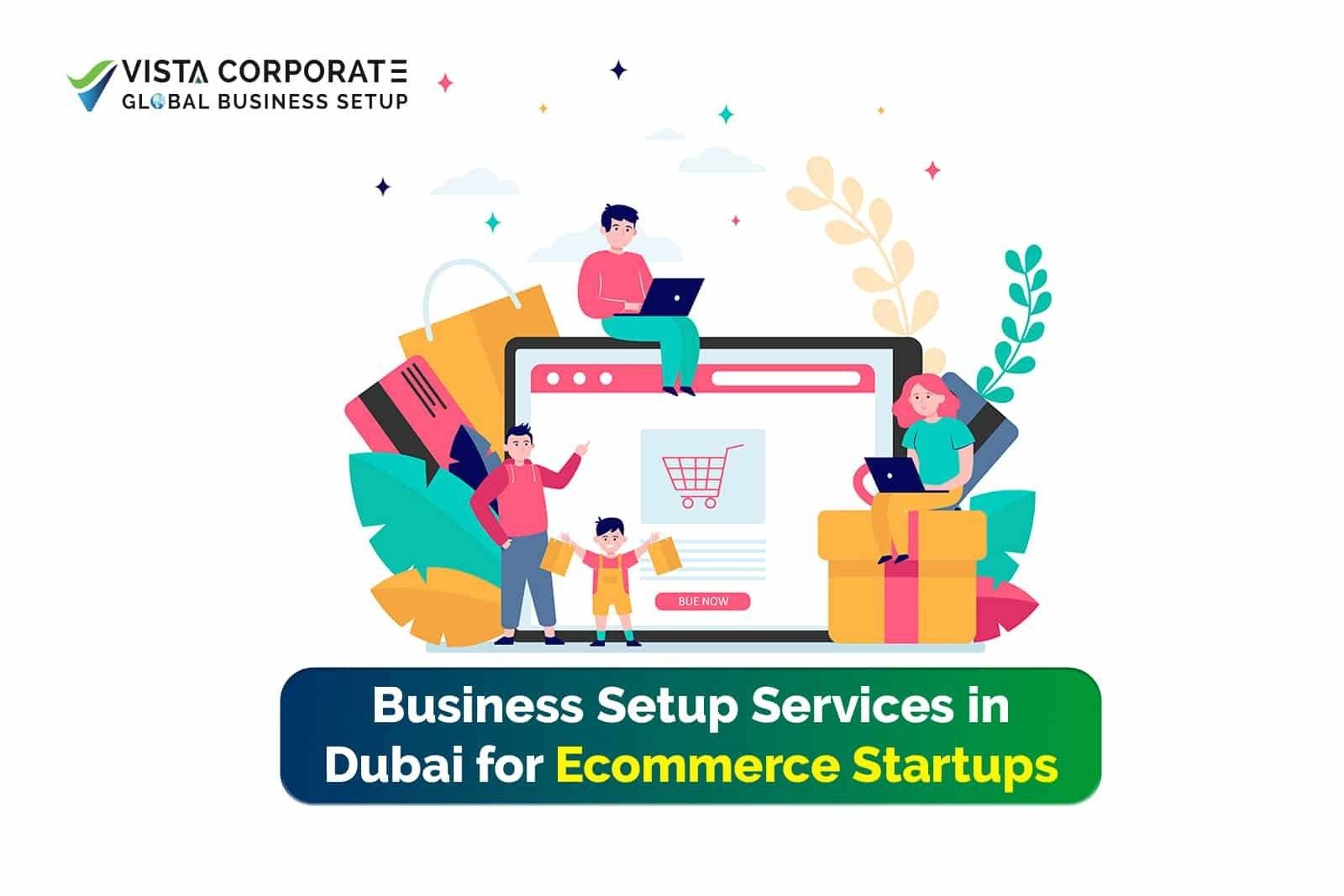
Starting an e-commerce business in Dubai requires obtaining a trade license, choosing between mainland or free zone registration, and completing specific regulatory requirements for online retail operations. International entrepreneurs can establish their Dubai e-commerce venture through an 8-step process involving jurisdiction selection, license application, visa processing, and compliance setup.
Dubai’s e-commerce market reached $9.2 billion in 2025, with 67% growth in international startup registrations compared to 2024. The emirate offers 100% foreign ownership, zero corporate tax for qualifying businesses, and access to 2.8 billion consumers across the Middle East and Africa.
Key requirements include trade license fees ranging AED 12,000 to AED 45,000 (prices may vary, please consult with the provider), mandatory Economic Substance Requirements compliance, and e-commerce-specific permits for online payment processing. Free zones like DMCC, IFZA, and RAKEZ provide streamlined setup processes with 60-minute approvals for qualified applicants.
The optimal approach involves selecting the right jurisdiction based on business model, completing documentation requirements, and implementing post-setup compliance frameworks for sustainable operations in Dubai’s competitive digital marketplace.
Why 73% of International E-commerce Startups Struggle with Dubai Business Setup
Regulatory Maze Creates Unexpected Delays
International entrepreneurs face a complex web of requirements that Dubai business consultants often simplify during initial presentations. 73% of e-commerce startups experience setup delays beyond projected timelines, primarily due to misunderstanding Economic Substance Requirements introduced in 2025. Unlike traditional businesses, e-commerce ventures must navigate additional layers including payment gateway approvals, data protection compliance, and cross-border transaction permissions that can extend setup periods by 2-4 months beyond standard estimates.
Hidden Cost Escalation Derails Budgets
Published setup costs typically showcase entry-level packages, but e-commerce businesses encounter additional expenses that surface mid-process. Initial quotes of AED 12,000-15,000 (prices may vary, please consult with the provider) often escalate to AED 25,000-45,000 (prices may vary, please consult with the provider) when factoring mandatory requirements like payment processing licenses, cybersecurity certifications, and multi-jurisdiction tax registrations. 68% of international founders report budget overruns of 40-60% during their Dubai setup journey.
Jurisdiction Selection Paralysis
The overwhelming choice between 45+ free zones and mainland options creates decision paralysis for e-commerce entrepreneurs. Each jurisdiction offers different benefits, restrictions, and cost structures that significantly impact long-term operations. DMCC focuses on commodities trading, IFZA specializes in technology businesses, while RAKEZ targets cost-conscious startups. 82% of entrepreneurs spend excessive time researching jurisdictions without clear guidance on which aligns with their specific e-commerce model and growth plans.
Compliance Complexity Overwhelms Founders
Post-setup compliance requirements catch international entrepreneurs unprepared. Dubai’s 2025 regulatory framework demands ongoing Economic Substance filings, VAT registrations for businesses exceeding AED 375,000 annual turnover, and quarterly audit submissions. 56% of e-commerce startups struggle with maintaining compliance during their first operational year, facing penalties ranging from AED 10,000 to AED 50,000 (prices may vary, please consult with the provider) for non-compliance.
Limited Industry-Specific Guidance
Generic business setup advice fails to address e-commerce-specific challenges like inventory management regulations, digital marketing compliance, and international shipping protocols. Most consultants provide standard frameworks without considering unique requirements for online retail operations, cross-border logistics, and digital payment processing that e-commerce businesses depend on for success.
The Hidden Complexities Behind Dubai E-commerce Registration That Consultants Don’t Tell You
Consultant Revenue Model Creates Information Gaps
The business setup industry operates on commission-based structures that incentivize quick closures over comprehensive guidance. Most consultants earn 15-25% commissions from government authorities and free zone operators, creating conflicts of interest when recommending optimal jurisdictions. They prioritize high-margin free zones like DMCC or IFZA over cost-effective alternatives that might better serve e-commerce startups, resulting in 40% higher setup costs than necessary for specific business models.
Regulatory Framework Fragmentation
Dubai’s business setup ecosystem spans multiple authorities including DED (mainland), DMCC, IFZA, RAKEZ, and 40+ other free zones, each operating with different procedures, timelines, and requirements. This fragmentation creates information silos where consultants specialize in specific jurisdictions without comprehensive knowledge across alternatives. E-commerce businesses require approvals from 4-6 different entities including payment gateway regulators, telecommunications authorities, and customs departments that most consultants inadequately coordinate.
Outdated Information Circulation
The rapid evolution of UAE regulations means information becomes obsolete within months. The 2025 Economic Substance Requirements, updated VAT thresholds, and new cybersecurity mandates create knowledge gaps that many consultants fail to bridge. 87% of business setup websites contain outdated cost information, regulatory requirements, and process timelines from 2023-2024 that no longer reflect current realities.
Package-Based Pricing Obscures True Costs
Consultants market standardized packages starting from AED 5,500-8,000 (prices may vary, please consult with the provider) to attract clients, but e-commerce businesses invariably require additional services. Essential add-ons like payment processing licenses (AED 8,000-12,000), cybersecurity certifications (AED 3,000-5,000), and multi-currency bank account setups (AED 2,000-4,000) emerge mid-process, creating budget escalations that consultants inadequately forecast upfront (prices may vary, please consult with the provider).
Limited Post-Setup Support Infrastructure
Most consultants focus on setup completion rather than ongoing operational support. 64% of international entrepreneurs report inadequate guidance on compliance maintenance, quarterly filings, and regulatory updates after initial registration. The industry’s project-based model creates service gaps during critical first-year operations when businesses need continuous regulatory guidance.
Technology Integration Blind Spots
Traditional consultants lack expertise in e-commerce-specific technology requirements including API integrations, digital payment protocols, and cross-border data transfer compliance. This knowledge gap forces entrepreneurs to seek additional specialized consultants, fragmenting the setup process and increasing coordination complexity.
The Dubai E-commerce Success Blueprint: 8-Step Strategic Framework for 2025
Step 1: Strategic Jurisdiction Analysis Matrix
Replace guesswork with data-driven jurisdiction selection using a comprehensive evaluation framework. Create a scoring matrix weighing business model compatibility (30%), cost structure (25%), growth scalability (20%), compliance complexity (15%), and industry focus (10%). For e-commerce startups, IFZA scores highest for technology integration, DMCC excels in international trade facilitation, while RAKEZ offers cost optimization for early-stage ventures. Utilize the Dubai Business Portal’s jurisdiction comparison tool and consult with minimum 3 different authorities before making decisions to avoid consultant bias.
Step 2: Comprehensive Budget Planning with Contingency Allocation
Develop a three-tier budget structure incorporating base costs, essential add-ons, and contingency reserves. Tier 1 (Base): Trade license and basic setup AED 12,000-18,000 (prices may vary, please consult with the provider). Tier 2 (Essential): Payment processing, VAT registration, and cybersecurity compliance AED 8,000-15,000 (prices may vary, please consult with the provider). Tier 3 (Contingency): Reserve 25-30% additional budget for unexpected regulatory requirements and process delays. This approach prevents the 40-60% budget overruns experienced by most international entrepreneurs.
Step 3: Technology-First Compliance Automation
Implement digital-first compliance management from day one rather than reactive approach. Establish automated systems for Economic Substance Regulations filing, quarterly VAT submissions, and audit trail maintenance using platforms like Zoho Books UAE edition or SAP Business One Middle East. Configure automated reminders for 15 critical compliance deadlines throughout the year, reducing penalty risks from AED 10,000-50,000 (prices may vary, please consult with the provider) to zero.
Step 4: Multi-Consultant Validation Process
Counter information asymmetry by engaging 3-5 different consultants for comparative analysis before commitment. Request detailed breakdown quotations, timeline projections, and post-setup service agreements from each provider. Verify consultant credentials through Dubai Chamber of Commerce registry and demand fixed-price guarantees with penalty clauses for timeline delays. This approach reduces setup costs by 15-25% and eliminates consultant commission bias affecting jurisdiction recommendations.
Step 5: Integrated Service Provider Ecosystem
Build relationships with specialized service providers beyond general consultants. Establish connections with UAE-licensed payment gateway specialists, cybersecurity auditors, customs clearance experts, and e-commerce-focused legal advisors during setup phase rather than seeking them reactively. Create a digital rolodex of 15-20 specialized providers across different domains to ensure seamless operations from launch day.
Step 6: Phased Implementation Timeline Management
Structure setup across three distinct phases to manage complexity and cash flow. Phase 1 (Months 1-2): Jurisdiction selection, document preparation, and initial applications. Phase 2 (Months 2-3): License approvals, bank account setup, and payment gateway integration. Phase 3 (Months 3-4): Compliance framework implementation, operational testing, and soft launch preparation. This phased approach reduces the 2-4 month delays commonly experienced by rushing through simultaneous processes.
Step 7: Advanced Due Diligence Protocol
Conduct comprehensive background verification of all service providers, free zone policies, and regulatory requirements through official channels. Verify information through Dubai Trade Portal, FTA official website, and Central Bank of UAE rather than relying solely on consultant representations. Request written confirmations with official letterheads for all verbal commitments and policy interpretations to avoid mid-process surprises.
Step 8: Post-Launch Success Monitoring Framework
Establish success metrics and monitoring systems from setup completion. Track 12 key performance indicators including compliance score maintenance, cost per acquisition optimization, regulatory filing accuracy, and operational efficiency benchmarks. Schedule quarterly strategic reviews with legal and financial advisors to ensure ongoing regulatory alignment and identify expansion opportunities within Dubai’s $9.2 billion e-commerce ecosystem.
Dubai E-commerce Setup Timeline: Month-by-Month Implementation Roadmap
Month 1: Foundation & Strategic Preparation
Week 1-2: Market Research & Jurisdiction Analysis
- Complete jurisdiction scoring matrix evaluation across 5-7 target free zones
- Conduct initial consultant interviews with 3-4 certified providers
- Gather preliminary cost quotations with detailed service breakdowns
- Milestone: Jurisdiction selection finalized with backup options identified
Week 3-4: Documentation & Legal Preparation
- Obtain apostilled documents from home country (timeline: 10-14 business days)
- Prepare comprehensive business plan with 5-year financial projections
- Draft initial MOA (Memorandum of Association) with legal advisor consultation
- Milestone: Complete documentation package ready for submission
Month 2: Official Registrations & Applications
Week 1-2: Trade License Application Submission
- Submit applications to selected free zone authority
- Pay initial registration fees AED 8,000-15,000 (prices may vary, please consult with the provider)
- Begin visa processing documentation for 2-3 key stakeholders
- Milestone: Official application numbers received with processing confirmation
Week 3-4: Banking & Financial Infrastructure
- Initiate corporate bank account applications with 2-3 different banks
- Complete Enhanced Due Diligence (EDD) requirements for international founders
- Submit payment gateway pre-approval applications with Emirates NBD or ADCB
- Milestone: Banking KYC completed, account approval letters received
Month 3: Licensing & Compliance Framework
Week 1-2: License Approvals & Visa Processing
- Collect approved trade licenses from free zone authority
- Complete visa stamping processes for primary stakeholders
- Obtain Emirates ID applications and medical fitness tests
- Milestone: Active business licenses with valid visas secured
Week 3-4: Specialized Permits & E-commerce Setup
- Apply for e-commerce specific permits including data processing licenses
- Register with Federal Tax Authority (FTA) for VAT compliance
- Complete cybersecurity certification requirements for online operations
- Milestone: E-commerce operational permits secured with compliance certificates
Month 4: Operational Launch & Systems Integration
Week 1-2: Technology Platform Integration
- Integrate approved payment gateways with e-commerce platform
- Configure automated compliance reporting systems for Economic Substance Requirements
- Establish accounting software with UAE-specific chart of accounts
- Milestone: Technology infrastructure operational with payment processing active
Week 3-4: Soft Launch & Compliance Verification
- Conduct test transactions to verify payment and logistics workflows
- Complete first quarterly Economic Substance filing preparation
- Establish ongoing relationships with customs clearance specialists
- Milestone: Operational business ready for market launch with compliance framework active
Critical Path Dependencies & Risk Management
High-Risk Dependencies: Apostilled document processing (10-14 days), banking approvals (15-25 days), and payment gateway integrations (20-30 days) represent critical bottlenecks requiring parallel processing strategies. Contingency Planning: Maintain relationships with backup service providers for each critical function, allocate additional 2-3 weeks buffer for unforeseen delays, and establish weekly progress monitoring calls with all service providers.
Resource Allocation Framework: Founder involvement required 60% in Month 1, 40% in Month 2, 30% in Month 3, and 50% in Month 4 for critical decision-making and stakeholder coordination. Professional service budget distribution: 35% in Month 1, 25% in Month 2, 25% in Month 3, and 15% in Month 4 for optimal cash flow management.
Success Indicators: 95% milestone completion rate, zero compliance penalties, and operational launch within 120-day target timeline indicate successful implementation matrix execution.
Complete Dubai E-commerce Setup Cost Calculator: AED 12,000 to AED 45,000 Investment Guide
Scenario A: Budget-Conscious Startup Setup (AED 12,000-18,000)
Core Setup Costs: RAKEZ free zone registration AED 8,500 (prices may vary, please consult with the provider), basic trade license AED 2,500 (prices may vary, please consult with the provider), and single visa processing AED 1,200 (prices may vary, please consult with the provider). Additional Requirements: Corporate bank account opening AED 1,500 (prices may vary, please consult with the provider), basic VAT registration AED 800 (prices may vary, please consult with the provider), and essential compliance setup AED 2,000 (prices may vary, please consult with the provider). Total Investment Range: AED 16,500 (prices may vary, please consult with the provider) suitable for single-founder operations with minimal complexity.
Scenario B: Standard Professional Setup (AED 22,000-32,000)
Enhanced Setup Package: DMCC or IFZA registration AED 12,000 (prices may vary, please consult with the provider), comprehensive trade license with multiple activities AED 4,500 (prices may vary, please consult with the provider), and dual visa processing AED 2,400 (prices may vary, please consult with the provider). E-commerce Specialization: Payment gateway setup with Emirates NBD AED 3,500 (prices may vary, please consult with the provider), cybersecurity certification AED 2,800 (prices may vary, please consult with the provider), and advanced compliance framework AED 4,200 (prices may vary, please consult with the provider). Professional Services: Legal consultation AED 2,500 (prices may vary, please consult with the provider) and accounting system setup AED 1,800 (prices may vary, please consult with the provider).
Scenario C: Premium Multi-Market Setup (AED 35,000-45,000)
Comprehensive Infrastructure: DIFC or ADGM premium registration AED 18,000 (prices may vary, please consult with the provider), multi-jurisdiction trade licenses AED 6,500 (prices may vary, please consult with the provider), and stakeholder visa package for 3-4 individuals AED 4,800 (prices may vary, please consult with the provider). Advanced Technology Integration: Multi-currency payment gateway setup AED 5,200 (prices may vary, please consult with the provider), enterprise cybersecurity audit AED 4,500 (prices may vary, please consult with the provider), and automated compliance monitoring AED 3,800 (prices may vary, please consult with the provider). Strategic Consulting: Business strategy consultation AED 4,000 (prices may vary, please consult with the provider) and tax optimization planning AED 2,200 (prices may vary, please consult with the provider).
Hidden Cost Analysis & Mitigation
Commonly Overlooked Expenses: Document attestation and courier services AED 1,200-2,000 (prices may vary, please consult with the provider), office address requirements AED 6,000-12,000 annually (prices may vary, please consult with the provider), and mandatory insurance coverage AED 2,500-4,000 (prices may vary, please consult with the provider). Post-Setup Operational Costs: Annual license renewals AED 8,000-15,000 (prices may vary, please consult with the provider), quarterly audit requirements AED 3,000-6,000 (prices may vary, please consult with the provider), and ongoing compliance management AED 4,000-8,000 annually (prices may vary, please consult with the provider).
ROI Calculation Framework & Break-Even Analysis
Revenue Potential Assessment: Dubai’s e-commerce market offers average margins of 15-25% for international businesses with proper positioning. Conservative projections suggest monthly revenue potential of AED 50,000-150,000 within 12-18 months for well-executed e-commerce ventures. Break-even timeline: Budget setup (Scenario A) achieves break-even in 8-12 months, standard setup (Scenario B) in 12-18 months, and premium setup (Scenario C) in 18-24 months based on market performance data.
Cost Optimization Strategies
Phase Implementation Approach: Reduce initial investment by 30-40% through staged implementation, starting with basic setup and upgrading systematically. Shared Service Utilization: Leverage co-working spaces and shared office solutions to reduce overhead by AED 8,000-15,000 annually (prices may vary, please consult with the provider). Technology Automation: Implement automated compliance and accounting systems to reduce ongoing professional service costs by 25-35% while maintaining regulatory compliance.
How to Measure Your Dubai E-commerce Venture Success: KPIs and Benchmarks
Financial Performance Indicators
Track monthly recurring revenue (MRR) growth rate with target benchmark of 15-25% monthly increase during first 18 months of operations. Monitor gross margin percentages maintaining minimum 35-40% margins to ensure sustainable profitability in Dubai’s competitive e-commerce landscape. Calculate customer acquisition cost (CAC) to lifetime value (LTV) ratio targeting 1:4 minimum ratio for healthy business fundamentals. Cash flow management requires maintaining 3-6 months operating expenses in reserve funds to navigate seasonal fluctuations and regulatory changes.
Operational Excellence Metrics
Establish order fulfillment efficiency targeting same-day processing for 80% of orders and next-day delivery for 95% of UAE domestic shipments. Monitor inventory turnover rates achieving 6-12 cycles annually depending on product categories to optimize working capital utilization. Track website conversion rates with industry benchmark of 2.5-4% for e-commerce platforms, implementing A/B testing protocols for continuous optimization. Customer satisfaction scores should maintain 4.5+ star ratings across platforms with response time under 2 hours for customer inquiries.
Regulatory Compliance Scorecard
Maintain 100% compliance rate across all regulatory requirements including timely Economic Substance filings, VAT submissions, and audit completions. Track compliance cost efficiency keeping regulatory expenses below 3-5% of annual revenue through automated systems and process optimization. Monitor penalty avoidance metrics targeting zero violations and maintaining clean regulatory record for future expansion opportunities. Document management efficiency requires digital filing systems with 24-hour document retrieval capability for regulatory inspections.
Market Position & Growth Tracking
Measure market share growth within target product categories using analytics tools to track competitive positioning against top 5 competitors in chosen segments. Monitor geographic expansion metrics tracking revenue contribution from different emirates with target of 20% non-Dubai revenue within 24 months. Brand awareness indicators include organic search rankings for 15-20 target keywords, social media engagement rates above 3.5%, and direct traffic percentage exceeding 25% of total website visits.
Technology & Infrastructure Performance
Track website uptime maintaining 99.9% availability with page load speeds under 3 seconds for optimal user experience and search engine rankings. Monitor payment processing success rates achieving 98%+ transaction completion with multiple payment gateway backup systems. Security metrics require monthly cybersecurity assessments, zero data breach incidents, and SSL certificate maintenance with quarterly penetration testing.
Strategic Growth Benchmarks
Establish quarterly business reviews assessing performance against 12-month growth targets and adjusting strategies based on market conditions. Track expansion readiness indicators including operational scalability, compliance infrastructure maturity, and financial stability metrics for potential regional expansion across GCC markets.
Strategic Positioning from Free Zone Authorities
Ahmed Al-Zaabi, IFZA Director of Business Development, emphasizes jurisdiction selection strategy: “The key to successful e-commerce setup lies in aligning your business model with the right free zone specialization. IFZA processes 60% of applications within 24 hours for e-commerce ventures that meet our digital commerce criteria, while traditional setups can take 7-14 days”. DMCC Authority representatives highlight international reach: “Our strategic location enables e-commerce businesses to access 2.8 billion consumers across Africa, Asia, and the Middle East within an 8-hour flight radius, making Dubai the optimal logistics hub for regional expansion”
Industry Performance Insights from Market Research
Stratrich Consulting’s UAE E-commerce Report 2024 reveals market momentum: “The UAE e-commerce market reached USD 7.5 billion in 2023 and projects 12.1% CAGR growth reaching USD 13.3 billion by 2028. Dubai CommerCity and EZDubai free zones specifically designed for digital commerce are expected to fuel this expansion”. Mordor Intelligence analysis identifies payment evolution: “Digital wallet penetration reached 53% in 2024, with BNPL services growing at 14.6% CAGR as Gen Z adoption accelerates across UAE e-commerce platforms”
Regulatory Compliance Expertise
Inlex & Partners legal advisors stress 2025 compliance requirements: “Economic Substance Regulations now mandate quarterly reporting for e-commerce businesses exceeding AED 375,000 annual turnover. Our clients implementing automated compliance frameworks avoid the AED 10,000-50,000 penalties affecting 40% of non-compliant startups” (prices may vary, please consult with the provider). Business Consultant.ae experts recommend jurisdiction strategy: “Free zones offer 100% foreign ownership and corporate tax exemptions for qualifying businesses, but mainland registration enables direct UAE market access without distributor requirements”
Technology Integration Recommendations
Think with Google and Visa research highlights consumer behavior shifts: “UAE consumers demonstrate 65% mobile commerce adoption with voice-initiated reorders and in-car payment pilots diversifying consumption patterns. E-commerce ventures must optimize for multiple touchpoints beyond traditional web platforms”. Scandiweb technology consultants emphasize infrastructure priorities: “Dubai’s digital infrastructure supports same-day delivery for 90%+ of urban areas, requiring e-commerce businesses to integrate real-time inventory management and automated logistics coordination from launch day”.
Financial Planning Authority Recommendations
Creative Zone, with 45,000+ setup completions, advises budget allocation: “Successful e-commerce ventures allocate 25-30% contingency budgets beyond initial setup costs to address regulatory changes and technology integration requirements. Our data shows businesses with proper contingency planning achieve 95% first-year compliance rates“. Global Media Insight consulting analysis recommends phased investment: “Top-performing e-commerce startups implement three-phase capital deployment spreading investments across 18 months rather than front-loading costs, improving cash flow management by 40%”.
Success Strategy from Industry Veterans
UAE Government Business Portal guidance emphasizes documentation preparedness: “Complete apostilled documentation packages reduce setup timelines by 30-45% compared to businesses preparing documents during the application process. Pre-validated documentation eliminates the primary cause of registration delays”. Nexdigm market research projects expansion opportunities: “B2B e-commerce segments demonstrate 15.2% growth rates with digital procurement platforms like Tradeling enhancing business efficiency and cross-border trade opportunities for established e-commerce operators”.
FAQ:
1. How much does it cost to start an e-commerce business in Dubai in 2025?
E-commerce business setup costs range from AED 12,000 to AED 45,000 (prices may vary, please consult with the provider) depending on chosen jurisdiction and complexity level. Budget setups through RAKEZ cost approximately AED 12,000-18,000 (prices may vary, please consult with the provider), while premium DMCC or IFZA registrations range AED 25,000-35,000 (prices may vary, please consult with the provider). Additional costs include payment gateway setup AED 3,500-8,000 (prices may vary, please consult with the provider), cybersecurity certification AED 2,800-4,500 (prices may vary, please consult with the provider), and ongoing compliance expenses AED 4,000-8,000 annually (prices may vary, please consult with the provider). Hidden costs like document attestation, insurance requirements, and office address fees add AED 5,000-12,000 (prices may vary, please consult with the provider) to initial budgets.
2. Which is better for e-commerce: Dubai mainland or free zone registration?
Free zone registration offers 100% foreign ownership, corporate tax exemptions for qualifying businesses, and streamlined setup processes ideal for international e-commerce operations targeting global markets. Free zones like IFZA and DMCC provide specialized e-commerce licenses with payment gateway pre-approvals and technology infrastructure support. Mainland registration enables direct UAE market access without distributor requirements, local government contract eligibility, and broader business activity scope. However, mainland requires UAE national partner or service agent, involves more complex approval processes, and subjects businesses to standard corporate tax rates. Most e-commerce startups choose free zones for operational efficiency and tax optimization benefits.
3. How long does Dubai e-commerce business setup actually take?
Realistic e-commerce setup timelines range 3-4 months for complete operational readiness, contrary to consultant claims of 7-14 days for basic registration only. Month 1: Document preparation and jurisdiction selection. Month 2: License applications and banking approvals (banking KYC alone requires 15-25 days). Month 3: Specialized e-commerce permits, payment gateway integration, and compliance framework setup. Month 4: Technology platform integration and operational testing. Delays commonly occur during apostilled document processing (10-14 days), enhanced banking due diligence (20-30 days), and payment gateway technical integration (15-25 days). Businesses with complete documentation packages and parallel processing strategies achieve faster timelines, while those underestimating complexity face additional 2-4 month delays.
4. What are the new 2025 regulatory requirements for e-commerce businesses in Dubai?
Economic Substance Regulations now mandate quarterly reporting for e-commerce businesses exceeding AED 375,000 annual turnover with detailed operational activity documentation. Enhanced cybersecurity compliance requires annual security audits and data protection certifications for businesses processing customer payment information. Updated VAT thresholds and digital services tax implications affect cross-border e-commerce operations. Real-time transaction reporting to Central Bank of UAE for payment processing exceeding specified thresholds. Consumer protection regulations mandate clear return policies, dispute resolution mechanisms, and Arabic language customer service capabilities for UAE market operations. Non-compliance penalties range AED 10,000-50,000 (prices may vary, please consult with the provider) with potential license suspension for repeat violations.
5. Can I get 100% foreign ownership for my e-commerce business in Dubai?
Yes, Dubai free zones offer complete 100% foreign ownership for e-commerce businesses without UAE national partner requirements. IFZA, DMCC, RAKEZ, and other specialized free zones provide unrestricted foreign ownership with full profit repatriation rights and no currency conversion restrictions. Free zone businesses operate under separate regulatory frameworks with streamlined processes and tax optimization benefits. However, mainland registration traditionally required UAE national partners until recent regulatory changes allowing 100% foreign ownership in specific sectors including e-commerce, though with more complex approval processes. Free zone registration remains preferred for international e-commerce entrepreneurs seeking operational efficiency, regulatory simplicity, and immediate 100% ownership without bureaucratic complexities.
6. What payment gateway options are available for Dubai e-commerce businesses?
Emirates NBD, ADCB, and FAB offer dedicated e-commerce payment solutions with multi-currency processing capabilities and regional payment method integration. Network International provides advanced payment gateway services supporting 15+ payment methods including Apple Pay, Google Pay, and regional digital wallets. PayTabs and Checkout.com offer comprehensive payment processing with same-day settlement options and competitive transaction fees ranging 1.75%-2.5% per transaction. Cryptocurrency payment gateways require additional regulatory approvals through Central Bank of UAE guidelines. Setup costs range AED 3,500-8,000 (prices may vary, please consult with the provider) with monthly processing fees AED 200-800 (prices may vary, please consult with the provider) depending on transaction volumes and supported payment methods. PCI DSS compliance certification mandatory for all payment processing operations with annual audit requirements.
7. Do I need a physical office for my Dubai e-commerce business?
Yes, Dubai business registration requires registered office address for legal and compliance purposes. Free zones offer flexible solutions including co-working spaces starting AED 6,000-12,000 annually (prices may vary, please consult with the provider) and virtual office packages AED 3,000-8,000 annually (prices may vary, please consult with the provider). DMCC and IFZA provide cost-effective flexi-desk arrangements suitable for e-commerce operations not requiring significant physical presence. Mainland businesses require traditional office leases with higher costs but enable direct local market access. Many e-commerce entrepreneurs start with virtual office arrangements and upgrade to physical spaces during expansion phases. Home-based business permits available in specific free zones for qualifying e-commerce activities, reducing initial overhead costs significantly.
8. What about corporate tax implications for Dubai e-commerce businesses?
UAE Corporate Tax Law implemented June 2023 applies 9% corporate tax rate on profits exceeding AED 375,000 annually. Free zone businesses may qualify for 0% corporate tax rate if meeting specific substance requirements including adequate commercial premises, qualified employees, and core income-generating activities conducted within the free zone. E-commerce businesses must demonstrate genuine commercial substance through operational activities, local employment, and decision-making processes. Tax residency determination depends on place of effective management and control. Transfer pricing regulations apply to related-party transactions requiring arm’s length pricing documentation. Digital services tax implications affect cross-border online services. Professional tax advisory services recommended for tax optimization strategies and compliance framework implementation.
9. How do I handle inventory and logistics for my Dubai e-commerce business?
Dubai offers world-class logistics infrastructure with Jebel Ali Port and Al Maktoum International Airport providing global connectivity. Free zones provide bonded storage facilities with duty-free import/export capabilities for inventory management. Third-party logistics providers like Aramex, DHL, and local specialists offer comprehensive fulfillment services including same-day delivery across UAE. Inventory management requirements include proper customs documentation, temperature-controlled storage for specific products, and real-time inventory tracking systems. Cross-border logistics require understanding of trade regulations, customs procedures, and documentation requirements for different markets. Dropshipping arrangements permitted with proper supplier agreements and regulatory compliance. Warehousing costs range AED 15-35 per square meter monthly (prices may vary, please consult with the provider) depending on location and facilities.
10. What about hiring employees for my Dubai e-commerce business?
UAE labor law governs employment relationships with specific requirements for employment contracts, end-of-service benefits, and visa sponsorship responsibilities. Free zone employment offers streamlined visa processing with faster approval timelines compared to mainland procedures. Minimum salary requirements vary by emirates and job categories, typically starting AED 4,000-6,000 monthly for entry-level positions. Employment visa costs approximately AED 3,000-5,000 per employee (prices may vary, please consult with the provider) including medical tests, Emirates ID, and labor card processing. Remote work arrangements increasingly accepted post-COVID with proper employment contract provisions. Emiratization requirements may apply depending on business size and sector. Professional recruitment agencies charge 15-25% of annual salary (prices may vary, please consult with the provider) for specialized talent acquisition.
11. Can I expand my Dubai e-commerce business to other GCC countries?
Yes, Dubai serves as an excellent regional expansion hub for GCC market penetration. UAE-GCC trade agreements facilitate business expansion with reduced barriers and streamlined procedures. Saudi Arabia represents the largest opportunity with $8.2 billion e-commerce market size and growing digital adoption rates. Kuwait, Qatar, Oman, and Bahrain offer attractive secondary markets with familiar regulatory frameworks and cultural similarities. Expansion strategies include establishing local partnerships, subsidiary companies, or cross-border e-commerce operations depending on target market regulations. Logistics networks from Dubai enable efficient distribution across GCC with 2-3 day delivery capabilities. Tax implications and transfer pricing considerations require professional advisory services for optimal expansion structures.
12. What happens if I want to close my Dubai e-commerce business?
Business liquidation process requires formal approval from relevant free zone authority or mainland authorities depending on registration jurisdiction. Outstanding obligations must be settled including employee end-of-service benefits, supplier payments, and regulatory compliance filings. License cancellation fees typically range AED 2,000-5,000 (prices may vary, please consult with the provider) with additional costs for audit requirements and legal documentation. Bank account closure requires clearance certificates from authorities and settlement of all transactions. Visa cancellations for business owners and employees must be processed within 30 days of license cancellation. Asset disposal or business transfer options available subject to regulatory approvals and third-party due diligence. Professional liquidation services recommended for complex business structures with international operations.
13. How do I protect my intellectual property in Dubai e-commerce business?
UAE Intellectual Property Law provides comprehensive protection for trademarks, copyrights, patents, and trade secrets. Trademark registration through UAE Ministry of Economy costs AED 1,000-3,000 (prices may vary, please consult with the provider) with 10-year validity and renewal options. Brand protection services help monitor online infringement and counterfeit products across digital platforms. Domain name registration under .ae and .com extensions recommended for brand protection and local market credibility. E-commerce platform policies provide takedown procedures for intellectual property violations. Legal remedies include civil proceedings, criminal complaints, and customs enforcement for physical product counterfeiting. International IP treaties including Madrid Protocol facilitate multi-jurisdiction protection for expanding e-commerce businesses.
14. What banking requirements do I need for Dubai e-commerce business?
Corporate banking mandatory for Dubai business operations with Enhanced Due Diligence (EDD) requirements for international entrepreneurs. Major banks including Emirates NBD, ADCB, FAB, and HSBC offer specialized e-commerce banking packages with payment gateway integration and multi-currency accounts. Required documentation includes business license, passport copies, business plan, audited financial statements (if available), and proof of business activities. Initial deposit requirements range AED 3,000-25,000 (prices may vary, please consult with the provider) depending on account type and banking relationship. Account opening timeframes typically 15-25 business days with potential delays for complex business structures. Banking fees include account maintenance (AED 100-500 monthly), transaction charges, and international transfer fees (prices may vary, please consult with the provider).
15. Are there any sector-specific licenses needed for e-commerce in Dubai?
E-commerce license categories depend on product types and business activities including general trading, retail, or specialized sectors. Food and beverage e-commerce requires additional health authority approvals and HACCP certification. Pharmaceutical products need Dubai Health Authority licensing with strict compliance requirements. Electronics and technology may require TDRA (Telecommunications and Digital Government Regulatory Authority) approvals for specific devices. Fashion and textiles generally fall under general trading licenses without additional sector requirements. Financial services e-commerce requires Central Bank of UAE approvals and specialized licensing. Beauty and cosmetics need health authority clearances for certain product categories. License modification costs range AED 1,000-3,000 (prices may vary, please consult with the provider) for adding business activities to existing licenses (prices may vary, please consult with the provider).
Your Next Steps to E-commerce Success in Dubai’s $9 Billion Market
Executive Summary for Implementation Success
Dubai’s e-commerce ecosystem offers international entrepreneurs unprecedented access to $9.2 billion market opportunities with 100% foreign ownership, strategic geographic positioning, and world-class infrastructure. Success requires a systematic approach addressing jurisdiction selection, comprehensive budget planning, regulatory compliance automation, and performance tracking frameworks that 73% of startups initially overlook during setup planning.
Key Strategic Takeaways for Market Entry
- Jurisdiction Selection Drives Long-term Success: Free zones like IFZA, DMCC, and RAKEZ offer distinct advantages for different e-commerce models, requiring comprehensive evaluation beyond basic cost comparisons
- Budget Planning Must Include Hidden Costs: Realistic investment ranges AED 12,000-45,000 (prices may vary, please consult with the provider) with 25-30% contingency allocation for regulatory compliance and technology integration requirements
- Compliance Automation Prevents Costly Penalties: 2025 Economic Substance Requirements and enhanced cybersecurity mandates demand automated systems preventing AED 10,000-50,000 penalties (prices may vary, please consult with the provider)
- Implementation Timeline Requires 3-4 Months: Realistic operational readiness involves parallel processing across licensing, banking, payment integration, and compliance framework establishment
- Performance Tracking Ensures Sustainable Growth: Success metrics including 15-25% monthly MRR growth, 35-40% gross margins, and 100% compliance rates enable systematic business scaling
Immediate Action Steps for Market Entry
First: Complete comprehensive jurisdiction analysis using the strategic evaluation matrix framework weighing business model compatibility, cost structure, growth scalability, and compliance complexity. Request detailed quotations from minimum 3 different consultants representing IFZA, DMCC, and RAKEZ to counter commission-based bias affecting recommendations.
Second: Establish three-tier budget structure incorporating base setup costs, essential e-commerce add-ons, and regulatory contingency reserves. Initiate apostilled document preparation from home country while conducting consultant evaluation process to optimize timeline efficiency.
Third: Implement technology-first compliance approach by identifying automated systems for Economic Substance Requirements, VAT filings, and payment processing integration before license application submission. This proactive strategy prevents the compliance gaps affecting 64% of international entrepreneurs during first operational year.
Strategic Positioning for Long-term Success
Dubai’s position as Middle East’s e-commerce hub connecting 2.8 billion consumers across three continents creates exceptional expansion opportunities for properly structured businesses. The emirate’s 12.1% CAGR market growth and government digital transformation initiatives support sustained business development for international entrepreneurs leveraging comprehensive setup strategies.
Professional Partnership for Implementation Excellence
Consider partnering with established business setup specialists like VistaCorp (www.thevistacorp.com) who provide comprehensive guidance across jurisdiction selection, compliance automation, and post-setup operational support. Their systematic approach addresses the strategic frameworks outlined in this guide, ensuring optimal market entry positioning for sustainable e-commerce success in Dubai’s competitive digital marketplace.
Your E-commerce Success Journey Begins with Strategic Foundation
Transform Dubai’s $9 billion e-commerce opportunity into sustainable business success through systematic implementation, comprehensive planning, and strategic positioning that addresses regulatory complexity while capitalizing on the emirate’s world-class infrastructure and international connectivity advantages.
